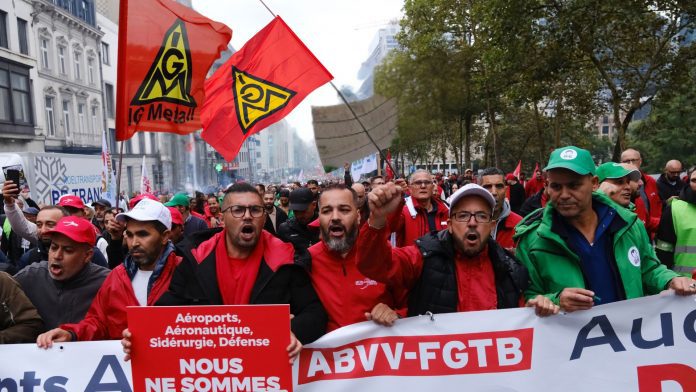Volkswagen employees across Germany launched warning strikes today, intensifying the standoff with the automaker over proposed changes to labor agreements and potential factory closures.
The strikes, which impacted nine car and component factories, halted production temporarily and shortened shifts as workers rallied for their demands.
Unionized employees, led by the influential IG Metall union, demonstrated with banners reading “strike ready” and “warning strikes — our right.” The actions follow Volkswagen’s announcement in September to terminate long-standing labor agreements, including a 1994 employment protection deal, and its indication that factory closures in Germany could be on the horizon for the first time in its history.
IG Metall’s chief negotiator, Thorsten Gröger, issued a stern warning on Dec. 1, labeling this conflict potentially “the harshest wage dispute ever seen at Volkswagen.” He emphasized that the resolution depends on management’s willingness to negotiate. On Dec. 2, Gröger reinforced this sentiment, stating, “Those who ignore the workforce are playing with fire — and we know how to turn sparks into flames.”
Moreover, Volkswagen’s Works Council leader, Daniela Cavallo, also urged workers to unite, declaring that the company’s board must work with the labor force during times of crisis. She stressed that mass layoffs, wage cuts, and plant closures are unacceptable. “Unfortunately, the signs sent by the board in recent times are not really pleasing,” Cavallo said, pointing to planned negotiations on Dec. 9 as pivotal in determining whether the dispute will escalate or resolve.
Nevertheless, the labor unrest comes after months of failed negotiations between Volkswagen, IG Metall, and the works council. Workers were previously unable to strike due to a peace obligation that ended on Dec. 1. Historically, major strikes at Volkswagen have been rare; the last large-scale industrial action occurred in 2018 and involved 50,000 workers. Smaller warning strikes involving thousands of employees took place in 2021.
Adding to tensions, Volkswagen management floated the possibility of widespread pay cuts and layoffs in October, which moved the union and works council to fiercely oppose it. They proposed alternative plans to safeguard jobs and maintain operations, but the automaker dismissed these.
As negotiations continue, the stakes for Volkswagen and its workforce are high. The Dec. 9 negotiations could either resolve the issue or mark the beginning of a more prolonged conflict that could disrupt one of Germany’s most iconic automakers.




